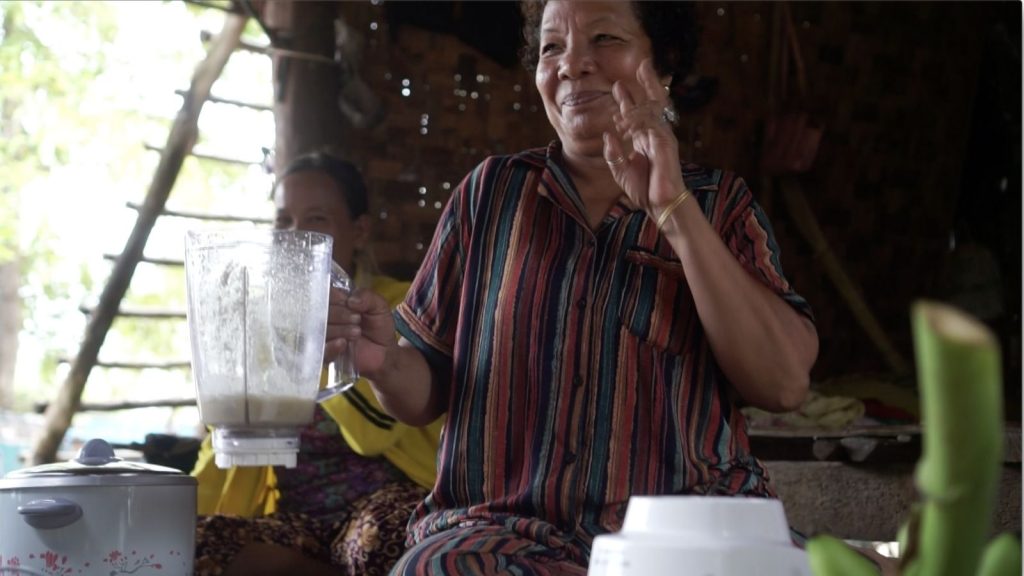
- Date
- 4th October 2021
- Categories
By Shukri Abdulkadir (Loughborough University) and Jane Spencer (Loughborough University).
Access to modern energy can transform lives and offering electric cooking appliances alongside electrification for households brings many benefits – not just for consumers but also for the energy companies providing access to modern energy for households. MECS interviewed two companies that are doing precisely this – delivering an off-grid solar home system that offers a full suite of services including electric cooking appliances to households, Okra Solar and Kachione LLC. These two companies have received support from MECS through our Challenge Fund grant, aimed at providing early-stage funding to stimulate innovations in modern energy cooking technology and systems. We spoke with Lawrence Kachione, proprietor of Kachione LLC and Emma Best, Partnership Officer at Okra Solar to get some insights into how these companies are providing more affordable off-grid electricity to low-income households by integrating electric cooking, whilst building local resilience in the face of the climate crisis. This blog was produced as part of the Efficiency for Access’ ‘Solar Appliances for Our Planet’ campaign in the run up to COP26.
Benefits of offering eCooking appliances alongside off-grid electrification
Cooking energy accounts for about 90% of all household energy consumption in developing countries. However, it is often considered separate from providing off-grid electricity to households currently without access to modern energy. Kachione LLC and Okra Solar are renewable energy companies with a mission to bring off-grid solar energy to communities currently without access to reliable electricity. Kachione LLC is based in Malawi and Okra Solar is Cambodia-based. Whilst delivering solar home systems to lower-income communities in Cambodia, Emma Best from Okra Solar noted that the “benefits of solar energy were being capped if end-users do not have easy access to eCooking appliances”. Their mission was expanded to “provide eCooking appliances and guidance to ensure that the benefits of rural electrification are met”. Integrating electric cooking appliances in the solar home systems distributed to households also meant that the companies were able to maximise efficiency and lower the unit price of electricity. In the case of Kachione LLC, they were able to “decrease the per-kWh cost of electricity by more than ten times compared to a system that serves only non-cooking appliances” according to their recently published article in Energies. This shows that integrating electric cooking in off-grid systems not only addresses the immediate cooking energy needs of consumers but is essential to making electricity more affordable and reliable for low-income households.

Building community resilience and local capacity
Cooking with biomass fuels poses a major threat to health, climate and the environment, and providing access to modern energy cooking services for all is critical to contributing towards alleviating these negative impacts. Electric cooking appliances can contribute towards increasing the resilience of communities to the growing negative impacts of the climate crisis. Okra Solar and Kachione LLC are actively building the resilience of local communities in Cambodia and Malawi, respectively, by providing access to solar appliances for cooking, water pumping and refrigeration. This is empowering communities to better respond to food insecurity and droughts caused by the global climate crisis. The decentralized systems offered by Okra Solar have the added value of functioning even during extreme weather events. Best emphasised that “by providing reliable energy access throughout monsoons, this project is helping households charge their phone and access essential information and services throughout climate emergencies”.
In addition, Kachione LLC is empowering local communities and building local capacity by manufacturing solar appliances locally in Malawi. Lawrence Kachione noted that this has “reduced the cost [of manufacturing] to about half as much as when they are manufactured abroad”, thereby making these appliances more affordable for lower-income households. Okra Solar has also made efforts to make their systems more accessible to all households, including those with lower income levels, through their Appliance Financing system. This system “enables end-users to purchase appliances for a low daily fee and repay the appliance whilst topping up their energy credit”, according to Best.
Empowering women through the transition to eCooking
Lack of access to clean cooking appliances negatively impacts women’s lives, as women and often children carry the health and time burdens associated with cooking with traditional biomass fuels. The adoption of the solar electric appliances distributed by Okra Solar has resulted in reduced time spent on cooking. Best: “84.7% of households are now spending less time on cooking than before”. With the support of MECS, Kachione LLC is testing a solar product supply, distribution, and service system that consists of village solar shops run by local women’s cooperatives. This initiative will contribute towards women’s empowerment through increased income and enhanced technical and business skills. Furthermore, Kachione underlined that it will enable “local farmers grow more food and vegetables in the dry season with solar-based irrigation services”, thereby boosting economic development of the cooperatives. Kachione LLC is working with women’s groups as well to reach more women through this initiative.
These insights shared by Kachione LLC and Okra Solar are encouraging as they show the multiple co-benefits of taking an integrated approach to the provision of modern energy for households which includes cooking – not only for consumers but also for energy companies currently not engaged in clean cooking. Integrating electric cooking appliances in off-grid solar home systems is critical to making this more affordable and available for all households. It is vital to accelerate access to affordable and high-performing electric cooking appliances as it offers a long-term, low-carbon solution in line with the global Paris Agreement target of achieving net-zero carbon future by 2050.
……………………………………………………………………………………..
Featured image: Photo by Eelco Böhtlingk on Unsplash